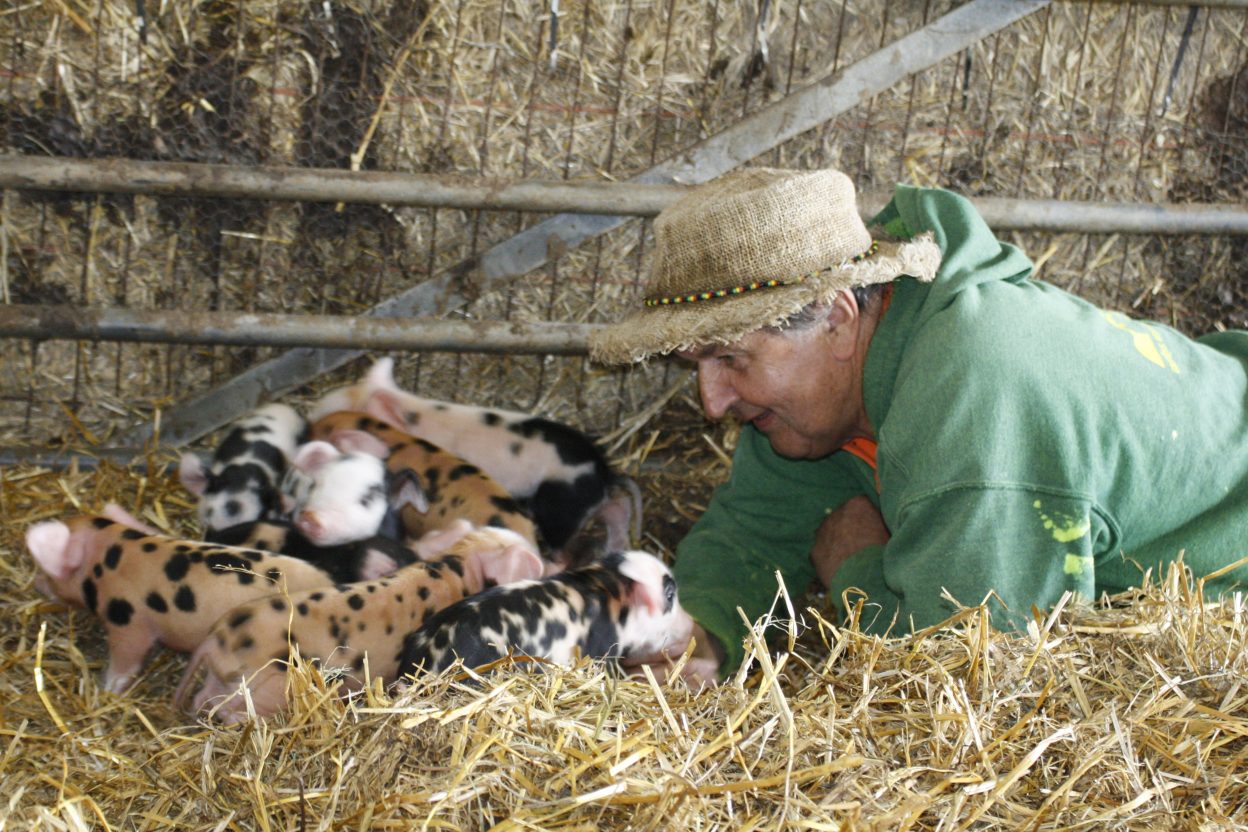As Elena explained in her last blog, her and Lili’s Welsh adventure is over, but the Agri-Activism project is continuing full throttle! Josie and I (Janny) will continue where Elena and Lili left off: helping out around Caerhys farm in beautiful Pembrokeshire, campaigning against GMOs and toxic chemicals, and promoting locally grown, organic food.
Business as usual at Caerhys Farm
Our second week in Wales was no less hectic than the first (we have discovered that this is Gerald’s modus operandi – a lot of flexibility and “going with the flow” is certainly required). Monday through Thursday we carried out some normal farm activities: weeding onions (wow, what a forest of weeds!), planting leeks (using Caz’s newly invented contraption to plant them in a straight row), relocating the herd of cows to the other pasture (they mooooh! in our back yard now) and moving a pregnant sow to the barn where she will hopefully soon deliver a bunch of cute little piggies.
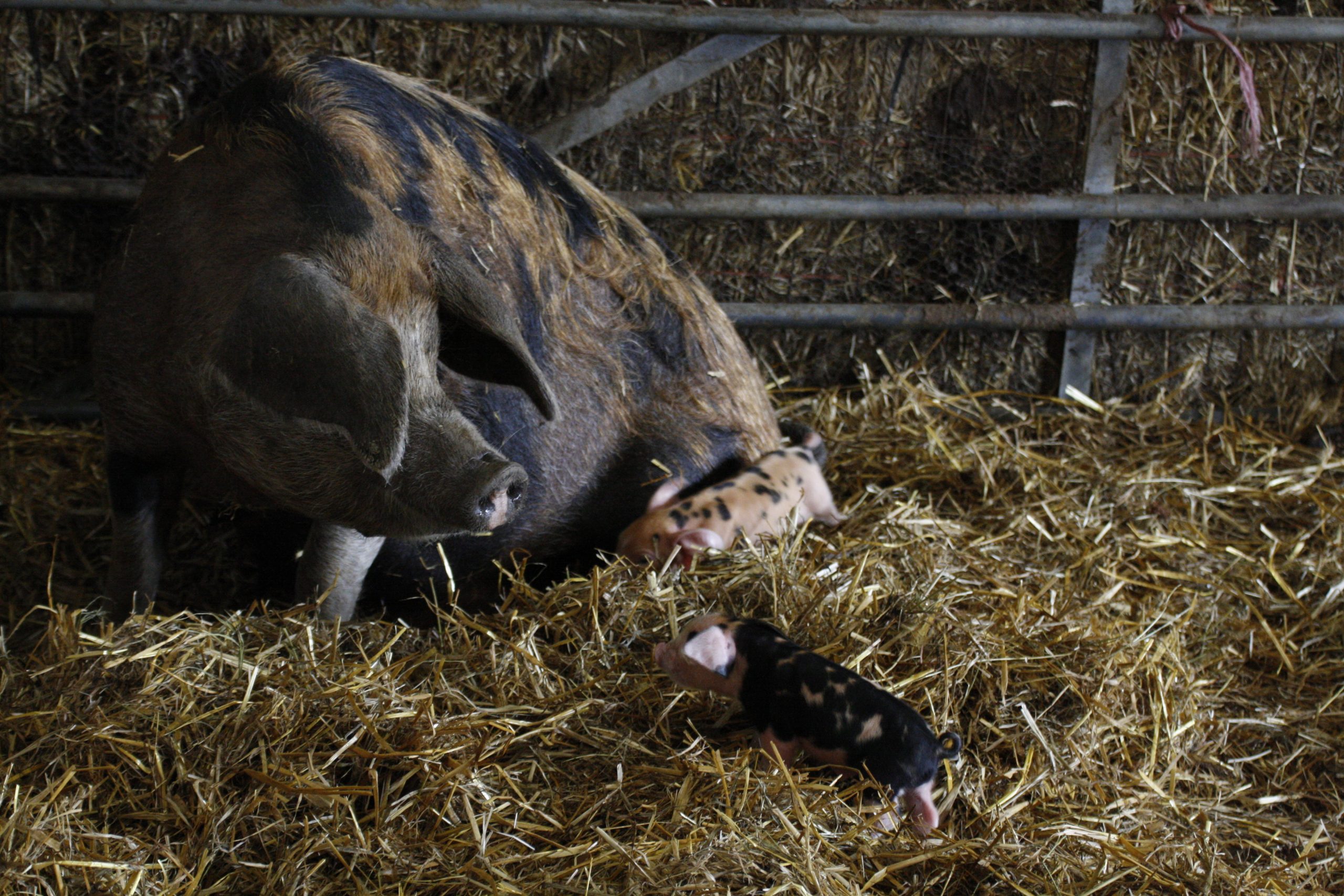
Famous Gerald
Friday was all craziness. We started the day with a trip to the university town of Aberystwyth, where Gerald was to be interviewed about GMOs and glyphosate on national radio (BBC Cymru). Of course, we couldn’t understand any of his Welsh, but we believe he did an amazing job answering the journalist’s critical questions. And he managed to sneak in our new favorite Welsh word: pendramongul (topsy-turvy)!
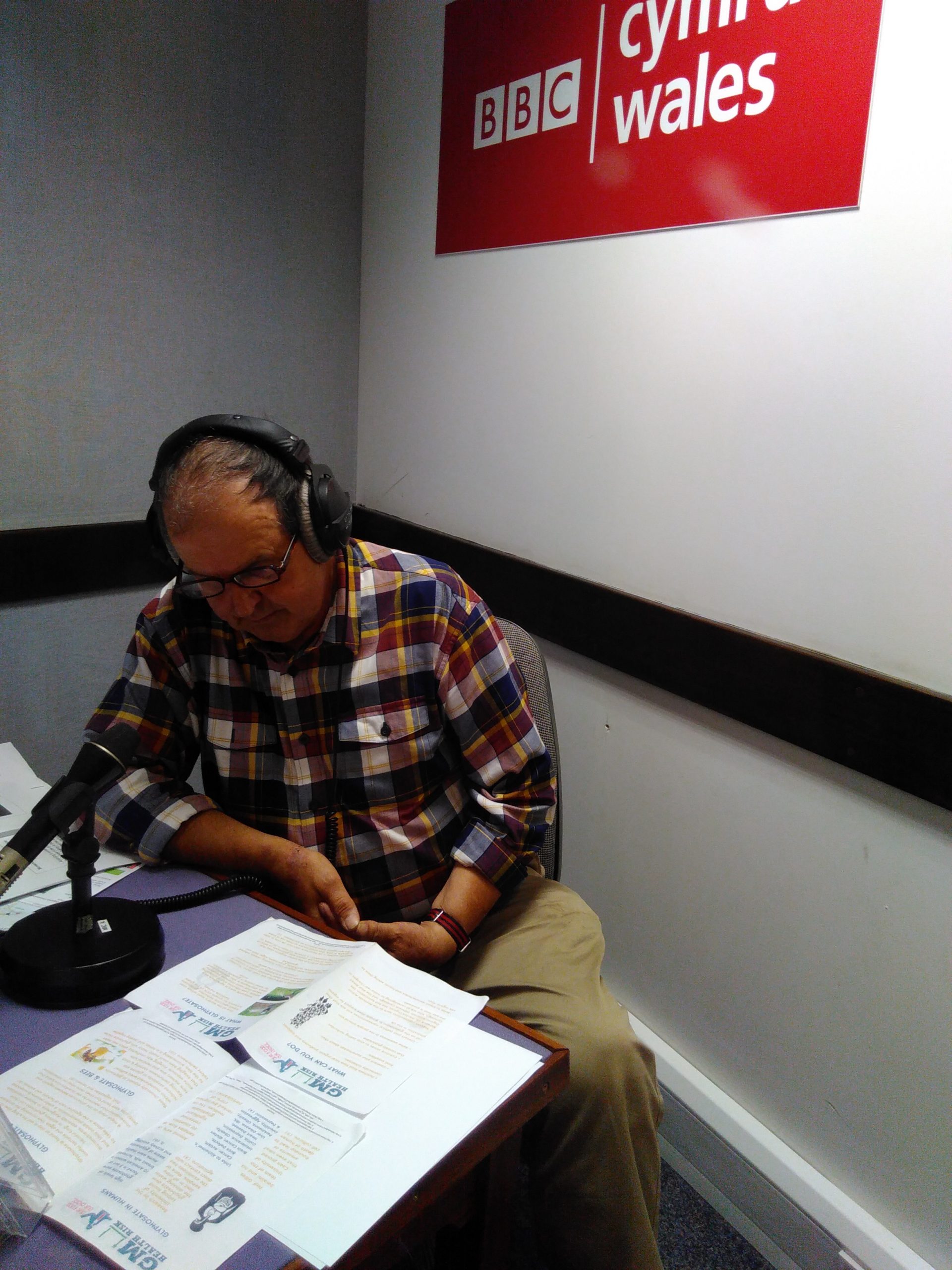
Straight after that we had an appointment at Farming Connect, to defend Gerald’s application for a grant for a knowledge exchange programme. Gerald wants to learn more about soil quality and he has found an expert who wants to come to the farm to study that topic and help Caerhys Farm improve it’s soil. All four of us “agri-activists” had pitched in on writing the project application; Gerald said he felt like the luckiest farmer in the world with so many advisers around his kitchen table!
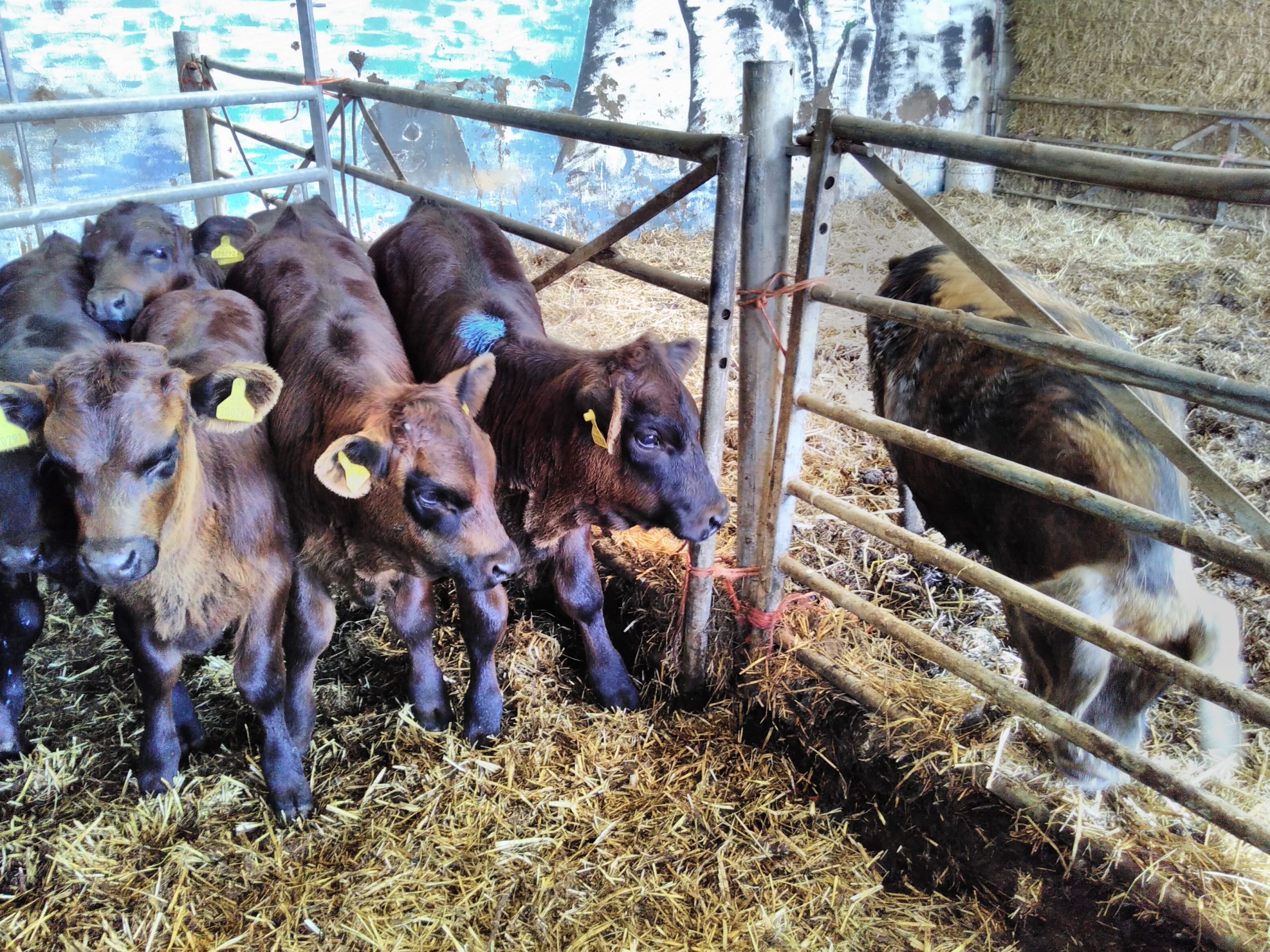
But no time to dawdle, because after our meetings in the city we had to race down to Coed Hills Rural Artspace (close to Cardiff) where Gerald was speaking at the Future Generations Growers Conference. What followed were two days of inspiring talks, workshops, an excursion to their wonderfully productive market garden and an evening of cider and music around the campfire.
Community Growing
The title “future generations growers” might sound a bit vague and futuristic, but in fact the conference dealt with a very urgent (and luckily quite fashionable) movement: community growing. More and more people around Wales (and Europe!) are realising that our current economic system of growing food is unsustainable and that we need to find new ways of involving people in producing their own veggies, fruit, meat and dairy.
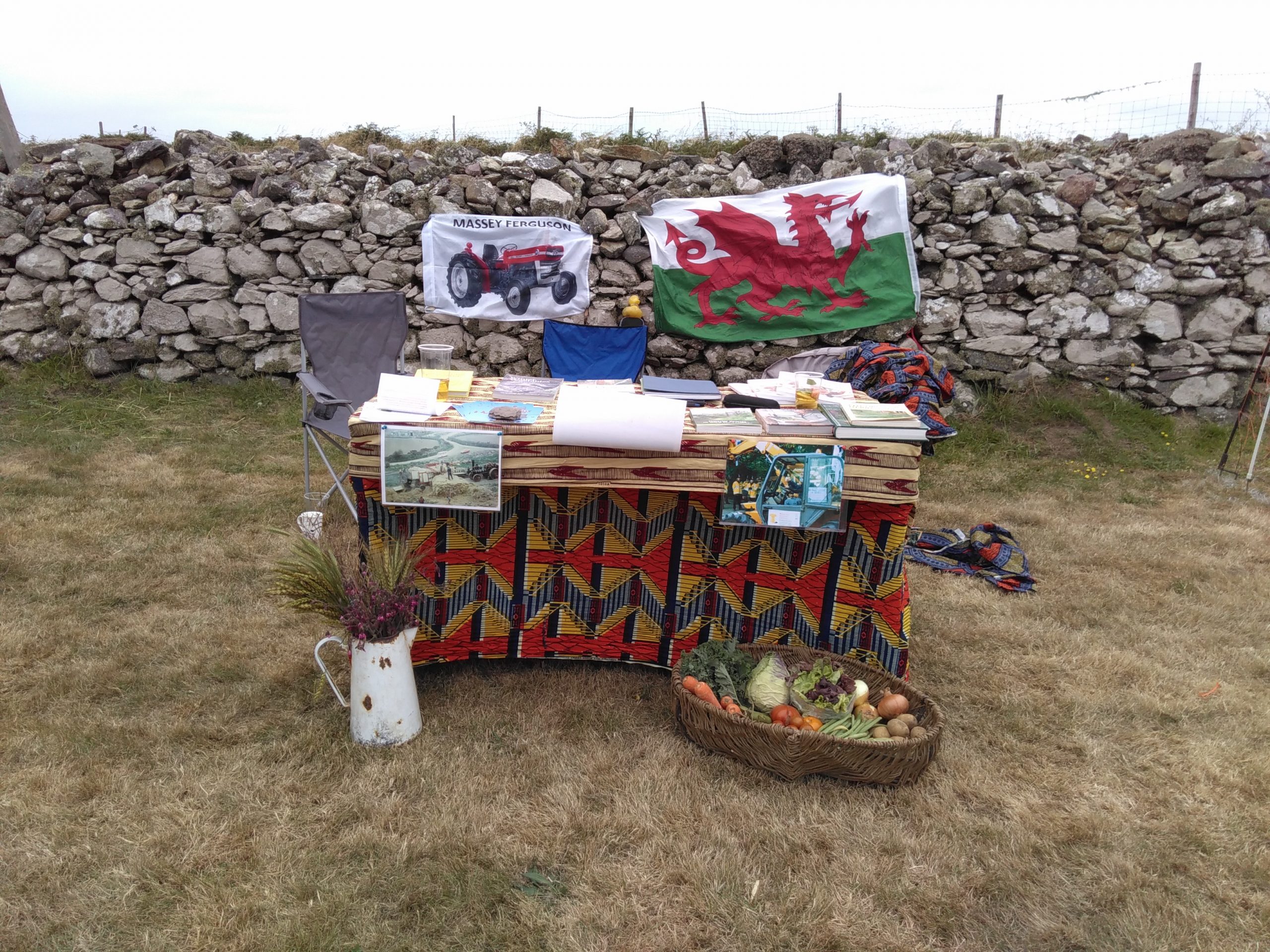
One promising method is Community Supported Agriculture (CSA), which is the model that Caerhys Organic Farm adopted six years ago. In this model, local citizens become members of a community and share in both the rewards and the risks of farming. This way, they have a say in what is being produced, how their food is being grown and they can even get their hands dirty if they wish (a great educational opportunity, too!) The advantage of this model is that the farmer no longer bears the entire burden in case of a bad harvest or rapidly dropping food prices.
But CSA is not the only way to get “normal” people involved in growing. At the conference, we learned about many other inspiring community growing projects, such as urban gardens, allotments and care farms.

